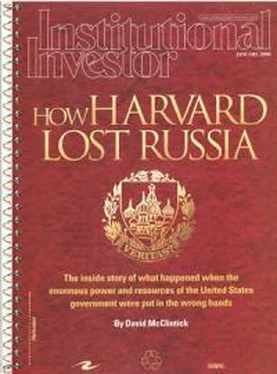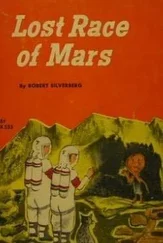The brazening-out of the Harvard scandal might not have succeeded so nearly completely if ordinary checks and balances of competition in the news business had obtained, but by the early ’00s newspapers had begun their barely-controlled financial descent. I should mention, however, the most surprising disappointment. David Remnick, himself a former Washington Post Moscow bureau chief, author of two books about the Russian transition, failed as editor of The New Yorker to assign a story, though, in John Cassidy, he had one of the liveliest financial reporters in the business.
Why were so many blind eyes turned to such an interesting and important story? My guess is a combination of access-hunger on the part of the reporters and institutional loyalties of various sorts among the bureaucrats. The authorities who framed the initial Harvard response presumably consulted with Deputy Treasury Secretary Summers, carefully, via back channels. Nor did the economics profession respond by reining in Shleifer’s position of power in any way. He edited the influential Journal of Economic Perspectives for five years, throughout the period of his greatest embarrassment.
What hope that the story will eventually get a proper airing? McClintick, one of the most gifted investigative reporters of his generation (Swordfish, Indecent Exposure and Stealing from the Rich), seems to have given up on it, after marrying his best source, Andrea Rutherford, secretary for many years to Dimitri Vasiliev, head of the Russian Securities and Exchange Commission.
USAID, a semi-independent arm of the State Department, is preparing a history of its last twenty years. Perhaps its historians will tackle the subject. USAID personnel know the inside story; and, practically without exception, its officers behaved well.
There is even a chance that the Harvard faculty will demand the release of the report of its Committee on Professional Responsibility. The late Jeremy Knowles, dean of the Faculty of Arts and Sciences, decreed that it remain secret not long before he died.
Inside Job won its Oscar last Sunday for best documentary. Sure, I have plenty of reservations about Charles Ferguson’s film. The Wall Street madam who insists that Everybody Did It is scarcely credible; she seems there mainly to exculpate star witness Eliot Spitzer. His narrators (Nouriel Roubini, Raghuram Rajan, Gillian Tett) tell no coherent story except “greed” (Ferguson was trained as a political scientist, not an economist, at the Massachusetts Institute of Technology.)
Yet thanks to the sheer rhetorical force of his film, many research universities are rethinking their conflict of interest and disclosure policies. Even the American Economic Association has formed a committee to consider whether it has responsibilities in the matter. Ferguson deserves that Oscar.
Those committees, in their deliberations, would do well to consider the Harvard matter, too. Yes, it was in a foreign country, and besides the wench is dead. But the subtle suborning of the scholarship of the community of students of the American involvement in the Russian transition, and of the journalists who cover them, by the little foursome that was chosen to represent the government of the United States to the government and the citizens of Russia, was, to my mind, a more serious matter than any single thing that has yet surface on Wall Street. Martin Gilman deserves his asterisk – and so do all the rest named here, including, especially, Harvard University.
DAVID WARSH covered economics for The Boston Globe for 22 years and, earlier, reported on business for The Wall Street Journal and Forbes. He publishes Economic Principals.com, an independent weekly commentary on the production and distribution of economic ideas, where this article first appeared. He can be reached at warsh@economicprincipals.com
Harvard Mafia, Andrei Shleifer and the Economic Rape of Russia
Chronicles of Harvard University Russian Economic Team Scam and Deep Corruption of Academic Economics
http://www.softpanorama.org/Skeptics/Pseudoscience/harvard_mafia.shtml
I liked it when he said, "These cases are complicated and difficult to prosecute, but if you're serious about doing them, you can." Doesn't that describe the situation perfectly? It can be done if we set our minds to it. We need to get started and make that happen.
Comment to 'inside job' (Yahoo! Finance)
Money has no motherland; financiers are without patriotism and without decency; their sole object is gain.
Napoleon Bonaparte
The modern power elites thrive by forgetting any regrettable past. This amnesia is easy at Harvard, where the legal fiduciaries operate in secret and need not answer for their acts. They are the antipodes of the selfless institutional servants who built Harvard and other great American enterprises, and they bear close watching.
(Harry R. Lewis Larry Summers, Robert Rubin Will The Harvard Shadow Elite Bankrupt The University And The Country)
"It's a mafia," he says quietly...
Hip Heterodoxy by Christopher Hayes
Introduction
A interesting rogues’ gallery of international financial criminals with high academic degrees who got their education in Harvard (Harvard mafia in a broad sense) owes its existence to the dissolution of the USSR and subsequent financial crisis. The level of corruption and rent seeking behaviors of those individuals is really breathtaking. The term "mafia" is not rhetorical overshoot: they are mafia in a very precise meaning of this word: the mafia at its core is about one thing -- money (see also Russian board game Mafia). Like in a typical Mafioso family there is an ethnic core and a hierarchy, with higher-ranking members making decisions that trickle down to the other members of the family. And its policies are always about oppression, arrogance, greed, self-enrichment, power and hegemony above and against all others.
The story of Andrei Shleifer in Russia is a classic story of "academic extortion": betrayal of trust and academic principles by Harvard professor of economics (probably not without the influence of his wife, hedge fund manager Nancy Zimmerman, longtime friend of Larry Summers). While the guy was just a pawn in a big game, the issues of criminality of economists (and some universities economics departments ;-) and relevance of RICO statute against such offences is a much bigger issue.
Under RICO, a person who is a member of an enterprise that has committed any two of 35 crimes—27 federal crimes and 8 state crimes—within a 10-year period can be charged with racketeering. Those found guilty of racketeering can be fined up to $25,000 and/or sentenced to 20 years in prison per racketeering count. In addition, the racketeer must forfeit all ill-gotten gains and interest in any business gained through a pattern of "racketeering activity." RICO also permits a private individual harmed by the actions of such an enterprise to file a civil suit; if successful, the individual can collect treble damages.
... ... ...
On March 29, 1989, financier Michael Milken was indicted on 98 counts of racketeering and fraud relating to an investigation into insider trading and other offenses. Milken was accused of using a wide-ranging network of contacts to manipulate stock and bond prices . It was one of the first occasions that a RICO indictment was brought against an individual with no ties to organized crime. Milken pled guilty to six lesser offenses rather than face spending the rest of his life in prison.
There is a disturbingly deep analogy between Harvard University (which had been benevolently charged with just breach of contract by the US government) and Michel Milken activities. Separately Shleifer and an associate, Jonathan Hay, were charged with conspiracy to defraud the U.S. government. Later he was stripped of honorary title "Whipple V.N. Jones Professor of Economics" due to ethics violation, but he managed to preserve his position at the university due to Summers protection (Larry Summers A Suicidal Choice - Mark Ames).
Читать дальше






![Джонатан Димблби - Barbarossa - How Hitler Lost the War [calibre]](/books/385421/dzhonatan-dimblbi-barbarossa-how-hitler-lost-the-w-thumb.webp)





